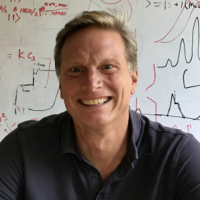SystemX Affiliates: login to view related content.

*To receive email announcements and live stream information for upcoming seminars, please subscribe to the SystemX Seminar/EE310 Mailing list here.
Innovations in quantum science and technology have enabled previously unforeseen levels of measurement and control over simple quantum systems comprised of atoms, electrons and photons. This talk will illustrate some of these advances with examples relevant to bio-imaging and precision sensing. For example, so-called quantum non-demolition measurements provide a foundation for next generation electron microscopes capable of low-damage imaging of biological samples such as proteins. Related non-demolition protocols for atoms in high finesse optical cavities are used to produce entangled states of more than 1000 ultra-cold atoms. These states are exploited to improve the performance of atomic clocks. Finally, atom de Broglie wave interference experiments with atomic wavepackets separated by distances as large as 54 cm (image below is the resulting interference pattern) are being used for new tests of gravity and quantum mechanics. These examples, and their possible impact on basic science and technology, will be discussed.
Mark Kasevich is a Professor of Physics and Applied Physics at Stanford University. He received his B.A. degree (1985) in Physics from Dartmouth College, a B.A. (1987) in Physics and Philosophy from Oxford University as a Rhodes Scholar, and his Ph.D. (1992) in Applied Physics from Stanford University. He joined the Stanford Physics Department faculty in 1992. From 1997-2002 he was a member of the Yale Physics Department faculty. He returned to Stanford in 2002. His current research interests are centered on the development of quantum sensors based on cold atoms, application of these sensors to tests of gravitation and quantum mechanics, investigation of many-body quantum effects in cold atomic vapors, investigation of entangled-state metrology methods, and development of quantum-enhanced imaging methods. He co-founded AOSense, Inc. (2004) and serves as the company’s Consulting Chief Scientist. He currently serves as a Vannevar Bush Faculty Fellow.


